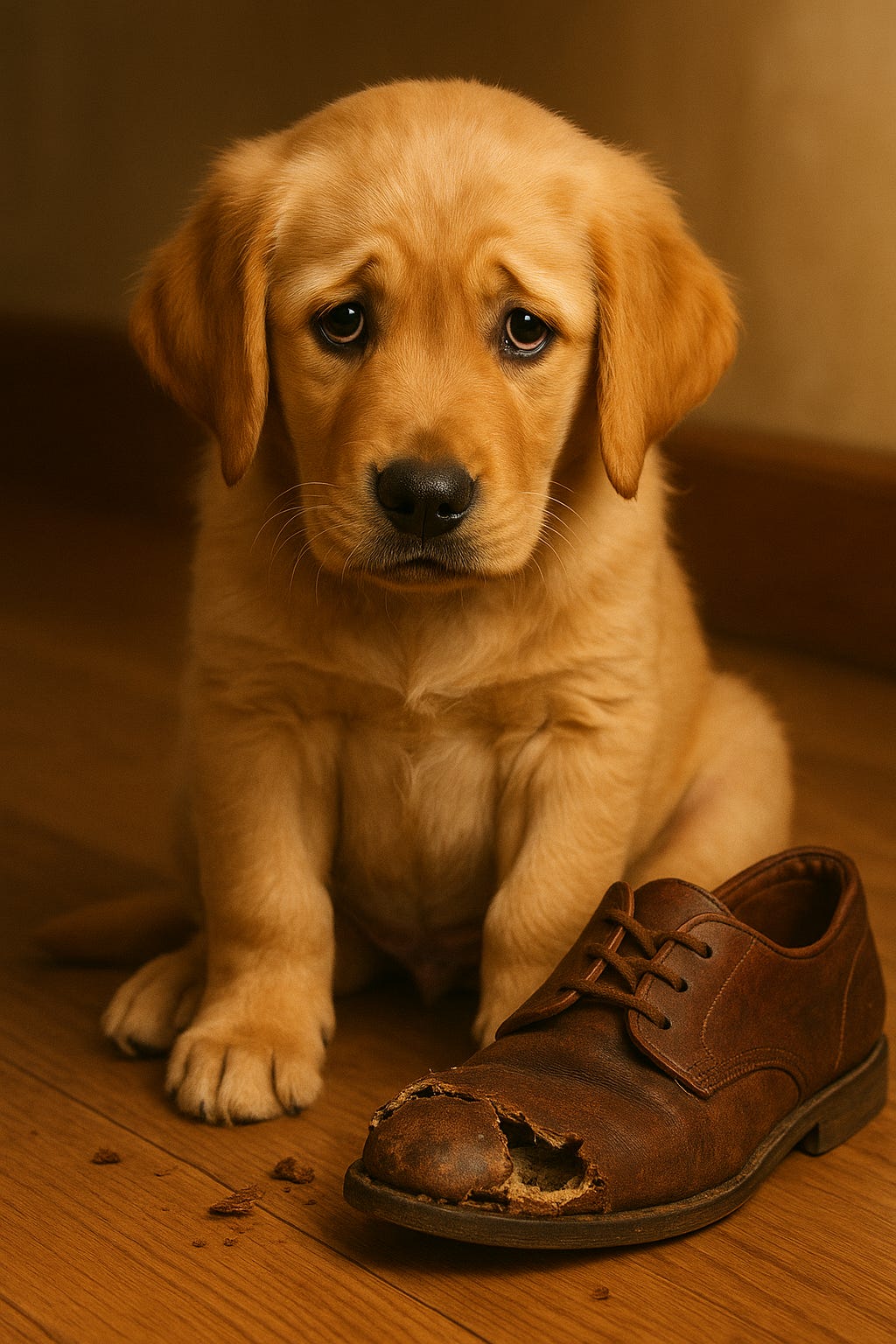We’ve all seen it—the droopy ears, the tucked tail, the sideways glance when your dog knows they’ve done something wrong. Maybe they chewed up your favorite shoe or knocked over the trash while you were gone. That guilty look seems undeniable, but here’s the question: Do dogs actually feel guilt, or are we just projecting human emotions onto them?
Scientists have studied this behavior for years, and the answer isn’t as simple as you might think. Let’s dive into what research tells us about those puppy-dog eyes and whether guilt is really what’s going on.
The Famous "Guilty Look" Experiment
In 2009, a study led by animal behavior researcher Alexandra Horowitz set out to test whether dogs truly feel guilt. The experiment was simple but clever. Owners were told to leave the room after instructing their dogs not to eat a treat. Some dogs obeyed, while others couldn’t resist.
Here’s the twist: Some owners were told their dog had eaten the treat (even if they hadn’t), while others were told their dog behaved (even if they hadn’t). When the owners returned, the dogs who were scolded—whether they had actually misbehaved or not—showed the classic "guilty look."
This suggested something surprising: The "guilty" expression wasn’t linked to whether the dog had done something wrong. Instead, it was a reaction to the owner’s disapproval. The dogs weren’t feeling guilt—they were responding to human anger or frustration.
What’s Really Happening in a Dog’s Brain?
Dogs are incredibly social animals, and they’ve evolved to read human emotions. They pick up on tone of voice, body language, and facial expressions. When you walk in and see a mess, your reaction—whether it’s a sigh, a frown, or a stern voice—triggers your dog’s response.
Brain scans show that dogs experience basic emotions like joy, fear, and anger. But guilt is a more complex emotion. It requires self-awareness—the ability to reflect on past actions and understand right from wrong. Scientists aren’t yet sure if dogs have this level of thinking.
What they do have is an amazing ability to learn from consequences. If your dog gets scolded after chewing a shoe, they might associate that action with your displeasure. But that’s not the same as feeling guilty. It’s more like: "Uh oh, my human is mad—better act submissive."
Can Dogs Tell Right From Wrong?
Some researchers believe dogs have a basic sense of fairness. Studies with wolves and dogs show they react when they’re treated unfairly—like if one gets a treat and the other doesn’t. But this isn’t guilt; it’s frustration or jealousy.
Dogs also learn rules through repetition. If they’re consistently rewarded for good behavior and corrected for bad behavior, they’ll follow those patterns. But again, this is training, not moral reasoning.
So when your dog "looks guilty," they’re not thinking, "I regret what I did." They’re thinking, "My owner is upset, and I need to calm them down."
Why Do We Believe Dogs Feel Guilt?
Humans are wired to see emotions in animals. It’s called anthropomorphism—giving human traits to non-human beings. We do it with dogs more than any other animal because they’ve lived alongside us for thousands of years. Their facial expressions even mimic ours in ways that wolves (their ancestors) don’t.
That "guilty face" might just be a survival tactic. Dogs who were better at reading and responding to human emotions were more likely to be cared for and kept around. Over time, those traits got passed down.
How Should You React to "Guilty" Behavior?
If your dog isn’t actually feeling guilt, does that mean scolding them is pointless? Not necessarily—but timing is key. Dogs learn best when feedback happens immediately. If you come home to a chewed-up couch and yell an hour later, your dog won’t connect the punishment to the action.
Instead, focus on positive reinforcement. Reward good behavior so your dog repeats it. If you catch them in the act of misbehaving, a firm "no" can help redirect them. But long lectures? Those just confuse them.
The Bottom Line
Dogs are masters at reading us, and their "guilty look" is more about avoiding conflict than feeling remorse.




